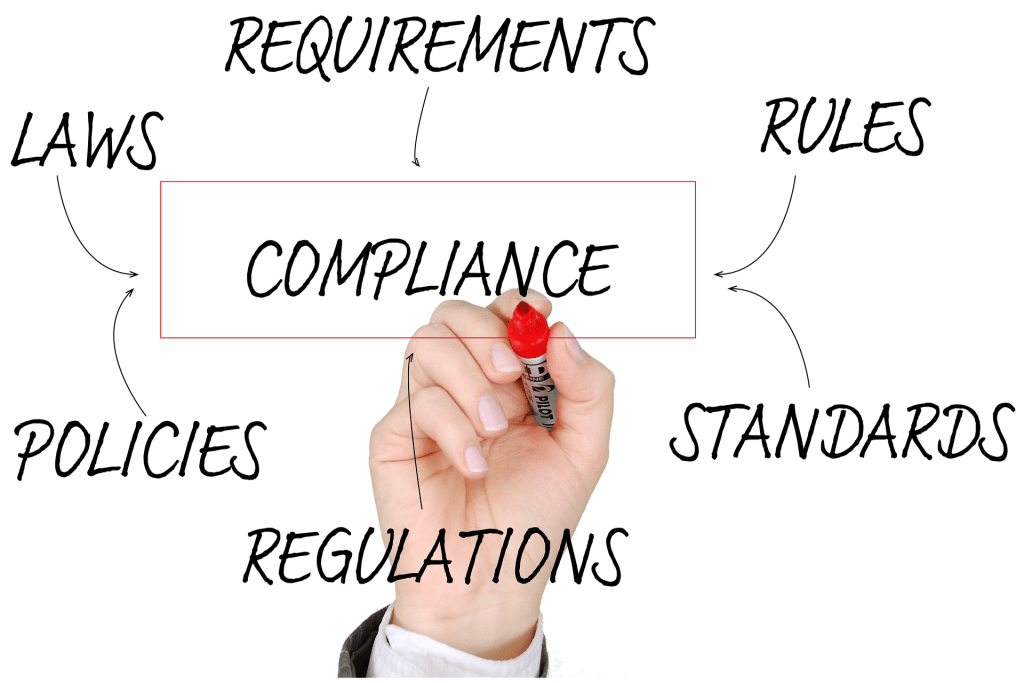Regulatory Compliance Explained
Managing regulatory compliance and mitigating risk can protect your business from financial liabilities, including fines and penalties, lawsuits, and reputational damage.
So, what is Regulatory Compliance?
 Regulatory compliance is an organisation’s adherence to specific laws, regulations, and guidelines relevant to its business processes. It is an ongoing process as regulations and laws morph and change to keep up with industry standards, criteria, and best-practice.
Regulatory compliance is an organisation’s adherence to specific laws, regulations, and guidelines relevant to its business processes. It is an ongoing process as regulations and laws morph and change to keep up with industry standards, criteria, and best-practice.
Each organisation should take strategic and procedural internal steps to promote ongoing regulatory compliance through its policies, procedures, processes, and management style.
Your business will benefit from implementing a compliance programme; a robust and consistent approach to compliance reviews will entrench compliance in your business practices and help you and your employees to detect, address and prevent possible violations. By following a scheduled compliance programme, your business can forge close ties with your regulatory body, keep abreast of any pertinent changes and updates, and update, train and implement these changes across the organisation without disrupting your business.
The Importance of Regulatory Compliance:

Regulatory compliance is key to your business’s wellbeing and the safety and wellbeing of your employees and customers. Regulatory bodies roll out guidelines and compliance standards based on best practise requirements, to address public interest concerns like safety, privacy, service standards, etc., and set minimum benchmarks that promote work, process, and product safety.
Regulatory compliance is essential to protect both businesses and customers alike in their interactions with one another. As well as ensuring that ethical practices are observed and maintained, engaging fully in regulatory compliance and being transparent about compliance processes can:
- Mitigate Risk and Reduce Liability. Endorse the laws, regulations, standards, and ethical practices applicable to your business.
- Promote a Culture of Consistent Accountability. Ensure your employees are following the protocols of your policies and procedures.
- Improve Operational Processes. This can yield significant benefits for your business operations.
The Challenges of Regulatory Compliance:
The challenges of remaining compliant are wide and varied. It takes time, effort, and expense to ensure that your business infrastructure and processes are compliant. This may also be viewed against the backdrop of the shareholders’ financial interests and maintaining overall business profitability.
There may be additional challenges, e.g.:
- Keeping abreast of changes in regulations
- Instilling and maintaining a compliant company culture
- Evolving compliance processes in line with new technologies as they emerge
Whilst regulatory compliance may be viewed as a nonsensical exercise in dotting i’s and crossing t’s, a way for bureaucrats to incorporate pedantic processes to frustrate the free flow of productive time, and a set of useless tick-box exercises, it does actually serve a greater purpose. It defines the framework within which businesses operate, sets the standards, provides guidelines and guidance, and protects businesses from operating outside the law. Regulatory compliance is the yardstick against which you measure your business’s behaviour and interactions, both internally and externally.
In Summary
Managing regulatory compliance in your business is a sound investment. It should not be viewed merely as a means of avoiding or sidestepping fines, penalties, and lawsuits; it is a commitment to upholding values and industry standards, it is about transparency that can help build client trust, and it is a framework that provides guidance on achieving your business goals.


Comments are closed.